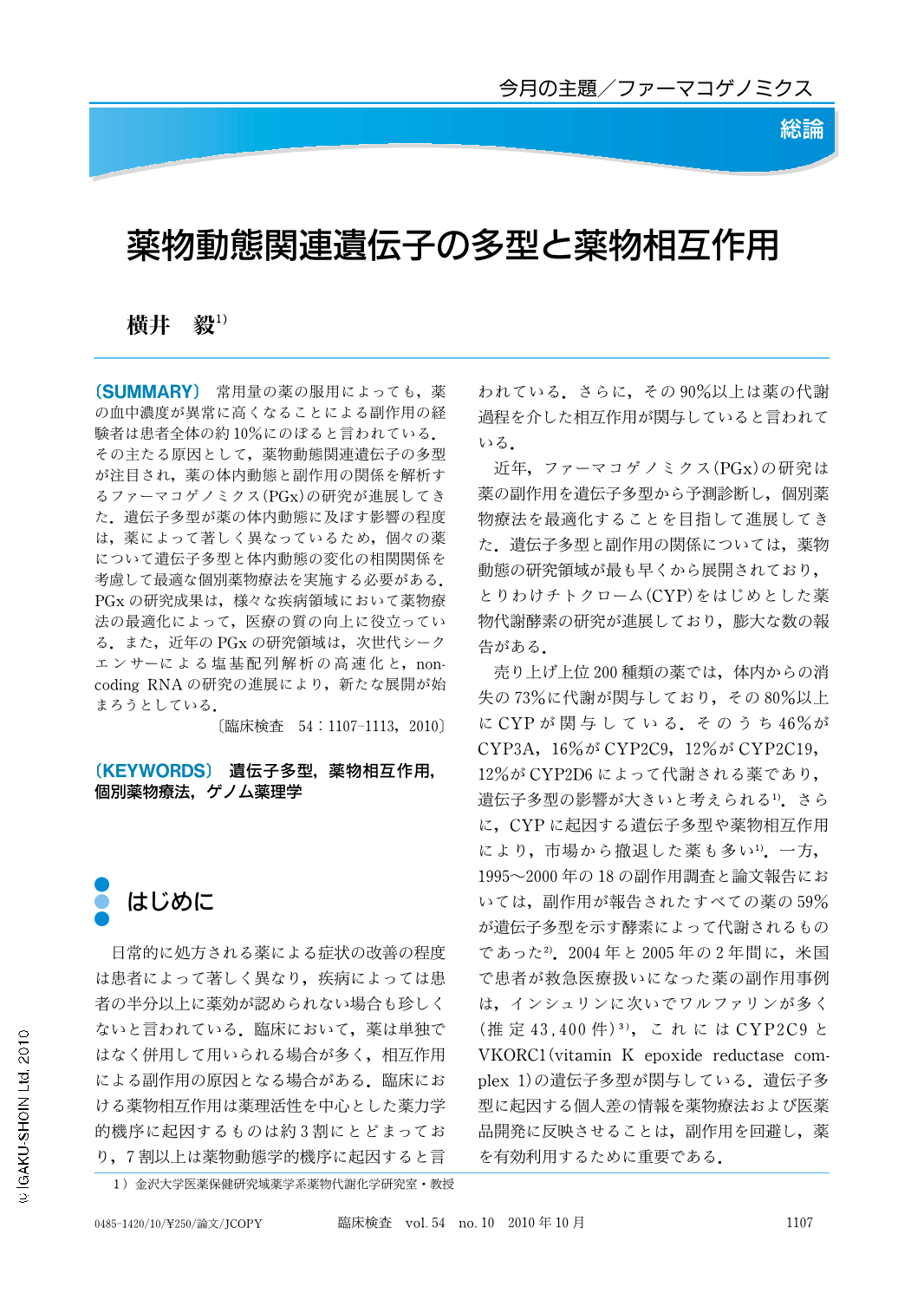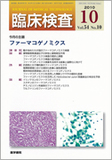Japanese
English
- 有料閲覧
- Abstract 文献概要
- 1ページ目 Look Inside
- 参考文献 Reference
常用量の薬の服用によっても,薬の血中濃度が異常に高くなることによる副作用の経験者は患者全体の約10%にのぼると言われている.その主たる原因として,薬物動態関連遺伝子の多型が注目され,薬の体内動態と副作用の関係を解析するファーマコゲノミクス(PGx)の研究が進展してきた.遺伝子多型が薬の体内動態に及ぼす影響の程度は,薬によって著しく異なっているため,個々の薬について遺伝子多型と体内動態の変化の相関関係を考慮して最適な個別薬物療法を実施する必要がある.PGxの研究成果は,様々な疾病領域において薬物療法の最適化によって,医療の質の向上に役立っている.また,近年のPGxの研究領域は,次世代シークエンサーによる塩基配列解析の高速化と,non-coding RNAの研究の進展により,新たな展開が始まろうとしている.
Pharmacogenetic polymorphisms are known affecting biotransfomation of drugs and clinical outcomes. Pharmacogenomic information is contained now in about 10% of labels for drug approved by the FDA. A significant increase of labels containing such information has been observed over the last decade. Many reports suggest that genetically determined metabolic capacities of drug-metabolizing enzymes have the potential to improve individual benefit and risk relationship. However, more and more prospective studies with clinical endpoints are needed to actualize ‘personalized medicine'. Recently, genome-wide association studies (GWAS) have matured into effective tools for mapping genes to examine pharmacogenetic traints, including drug metabolism, efficacy, and toxicity. GWAS is a very powerful tool to elucidate new biomarkers with high odds ratio. On the other hand, microRNA are a group of non-coding RNAs with modulator activity of gene expression. We found that miRNA-dependent regulation of CYPs and nuclear receptors is toxicologically and pharmacologically important. Recent new approaches have provided new insight into the mechanism of interindividual difference of gene expression including drug-metabolizing enzymes.

Copyright © 2010, Igaku-Shoin Ltd. All rights reserved.


